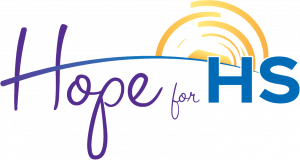Note from Admin: One of the things that we often see and hear in patient discussions is questioning why we don’t have a larger supply of HS knowledgeable medical professionals. Slowly but surely, that supply is increasing. Here’s what a current medical student has to say about his journey to learning more about HS.
In my last blog post, I talked about the importance of having a supportive community to help Hidradenitis Suppurativa (HS) patients navigate the challenges of this chronic condition and alleviate the
feeling of loneliness and isolation. Since then, I have had the opportunity to attend more Hope for HS
support group meetings and see how their role can extend beyond just emotional support.As I attended more meetings, I realized that they served as an invaluable resource and source of
information for patients with HS. These resources could come from support group coordinators who can connect new members to information about the latest medical advances, specialty care near their area, and other opportunities to connect such as in-person meetups and HS research conferences.They can also gain information from peers. During discussions, patients and family members shared
practical tips and insights on managing HS. Some shared lifestyle changes they have made to manage
their disease while others discussed bandaging and absorbent products they have used that are
affordable and effective. Many also opened up about their coping strategies and ways they have
maintained their sense of independence and autonomy while living with a disease that can be painful and physically debilitating. This collective knowledge-sharing improved the overall patient experience while incorporating the power of shared experiences in the healing process.Finally, patients and family members can also learn directly from a clinician expert. During my last
meeting, a dermatologist specializing in HS joined the meeting and answered patient questions. I was
amazed by the diversity of questions patients living with HS had such as the latest clinical trials about
drugs, the relationship of other medical conditions with HS disease severity, and the impact of various diets on HS management. It provided an opportunity to learn and gain medical insight about HS topics patients might not have time to discuss during their clinic visit. I was inspired by how proactive patients were about their health and their management of HS.Overall, my experiences with the HS support groups highlighted the importance of a holistic approach to
treating HS that goes beyond medicine and surgery. The impact of these groups can be transformative,
empowering individuals to take control of their conditions and advocate for their own healthcare needs.It also reinforced my belief about the crucial role a physician can play in helping a patient beyond the
Rayad Shams, Medical Student and HS Research Fellow
clinical setting. An effective clinician treating HS must provide accurate information about latest
treatment developments to patients in a timely manner while facilitating connection to peer support and community.
